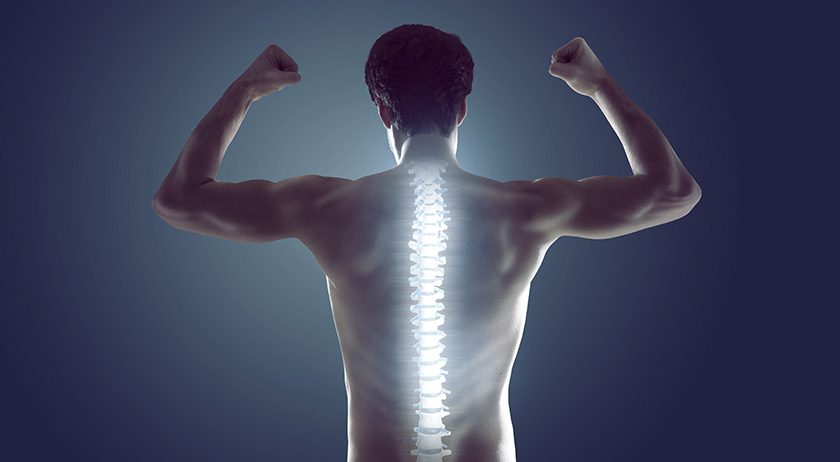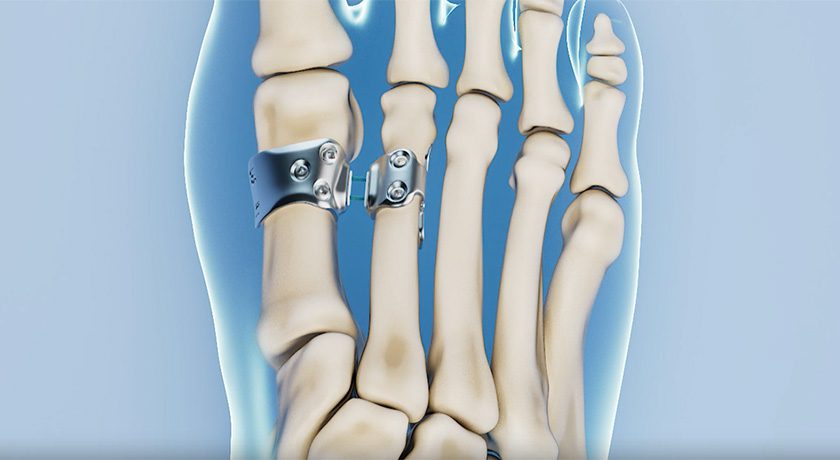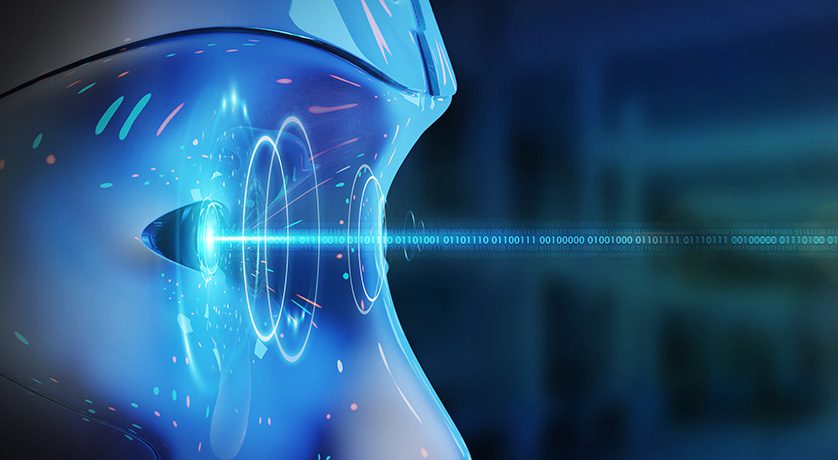

 Copy to clipboard
Copy to clipboard 
The 24 funding announcements we tracked by orthopaedic companies in 1H17 kept pace with the number of announcements made in the first halves of 2016 and 2015, signaling that the environment to raise capital remains consistent, but difficult. Risk-adverse private equity, venture capital and other investors continue to hesitate on backing companies that have yet to demonstrate clinical outcomes or secure regulatory approval, we learned from investors and startups. This is reinforced by the list of companies that received funding in the first half; more than half of those on the list have products on the market, while only two indicated the close of Series A funding.
Of additional note, large orthopaedic players continued to make investments in startups. Johnson & Johnson Innovation backed two companies working on cartilage-like products designed to assist with joint disease and defects. Hyalex Orthopedics’ HYALEX synthetic polymer is intended to mimic hyaline cartilage to potentially replace diseased areas of joints, while CartiHeal is undergoing an IDE clinical trial of the Agili-C implant for cartilage and osteochondral defects in the joints.
Smith & Nephew took a minority stake in Trice Medical, whose mi-eye system is used to diagnose joint injuries. The funding will support commercialization of the second generation of the system and R&D of mi-eye’s third-generation iteration.
This latter announcement is reflective of two observations. First, it validates the example that investors are backing proven technology. Second, it brings to light recent investments in diagnostics. Device companies seek to offer hospital and surgeon customers solutions to reduce costs pre- and-post operation. Three diagnostic/imaging technologies were among the 22 funding recipients in 1H17, including Ortho Kinematics, which had received a first round of funding by Medtronic in 2014.
The announcements below are grouped by market segment, broken into nine spine announcements, six in arthroscopy/soft tissue repair, three each for orthobiologics and trauma and one for joint reconstruction.
SPINE
Alphatec Spine entered into a definitive securities purchase agreement to raise ~$18.9MM in a private placement common stock, Series A Convertible Preferred Stock and warrants exercisable for common stock.
Net proceeds will support general corporate/working capital purposes, e.g. surgeon user expansion and launch of products such as Arsenal Deformity, Battalion Lateral and XYcor Expandable Interbody systems, etc.
AMB Surgical received an investment to support prototype development of the Flyte Automated Growing Rod for the treatment of juvenile scoliosis, traumatic injuries, etc. The technology allows for electronic control of adjustable rods used in orthopaedic procedures. Using Flyte a surgeon can perform remote, nonsurgical rod expansion via microchip and RFID reader that power a gear box within the rod. Additionally, the device also collects patient data, offering real-time biomechanical stress/strain information. The company seeks to prototype a rod for use in external frames, followed by implanted rods for scoliosis treatment and other internal uses.
Cerapedics received a $20.0MM senior secured term loan from Oxford Finance. Proceeds will support commercialization of i-FACTOR bone graft for use in anterior cervical discectomy and fusion (ACDF) and fund an FDA study on its application in transforaminal lumbar interbody fusion. i-FACTOR is reported to be the first and only FDA-approved product for ACDF and the first device to demonstrate superiority vs. autograft.
Intellirod Spine raised additional equity financing from new and existing investors, led by the OhioHealth Innovation Development Fund and Queen City Angel First Fund V. Proceeds will support commercialization of sensor technologies and related lumbar fusion implants.
Intrinsic Therapeutics closed a $49.0MM round of financing, which will support global commercialization of the Barricaid Anular Closure Device. Barricaid is designed to prevent reherniation following lumbar discectomy surgery to treat sciatic pain caused by a herniated disc. In 4Q16, the company filed a Premarket Application with FDA based on two-year outcomes of 554 trial subjects with a high risk of reherniation, subsequent reoperation and rehospitalization. Barricaid is reported to be the first of its kind in a prospective randomized superiority trial involving patients who are at higher risk for revision discectomy to alleviate recurrent pain resulting from reherniation.
The financing included a $28.0MM equity round co-led by New Enterprise Associates and Delos Capital, as well as a $21.0MM debt facility with investment firm CRG. Other investors include Greenspring Associates, Quadrille Capital and a corporate strategic.
Medicrea raised €13.0MM (~US $14.5MM) in a private placement. Funds will support U.S. development of the UNiD™ Adaptive Spine Intelligence (ASI) platform, comprising analytical services and biomechanical capabilities to collect and analyze clinical data for the creation of patient-specific spinal implants, as well as commercialization of a new range of 3D-printed titanium interbody cages in the U.S. and Europe.
Ortho Kinematics (OKI) closed a $18.6MM Series D equity financing. Funds will support development and commercialization of Vertebral Motion Analysis (VMA) technology for radiographic assessment of spinal instability and alignment.
The VMA system has received CE Mark and Health Canada approval. In 2014, OKI partnered with Medtronic to promote VMA’s use to spine surgeons.
Providence Medical Technology closed a $10.5MM debt agreement. This and other recent financing will support distribution of cervical fusion technology in U.S. and ex-U.S. markets. PMT’s products include DTRAX spinal systems, CAVUX cervical cages, ALLY screw systems and BIOLOGIX allograft bone, provided in single-use sterile packaging.
Vertiflex will use funds from a $40.0MM financing round to support U.S. commercial expansion of the Superion Indirect Decompression System, a minimally invasive implant for the treatment of moderate lumbar spinal stenosis.
New investors Endeavour Vision and H.I.G. BioHealth led the round, with participation from existing investors New Enterprise Associates, Thomas McNerney and Alta.
Vertos Medical completed a $28.0MM financing round. Funds will support commercialization of the mild outpatient procedure for the minimally invasive treatment of spinal stenosis. mild received broad coverage from the Centers for Medicare & Medicaid Services in 1Q17. The mild procedure has been performed on >20,000 patients, and has CE Mark approval in the EU.
MVM Life Science Partners led the round, with existing investors Leerink Revelation Partners, Pitango Venture Capital, ONSET Ventures and Aweida Venture Partners.
ARTHROSCOPY/SOFT TISSUE REPAIR
Active Implants completed the first $10.0MM tranche of a $40.0MM Class D Units financing. Funds will support two ongoing clinical trials of the NUsurface Meniscus Implant, a polymer-based investigational treatment for persistent knee pain following medial meniscus surgery. Enrollment for the SUN and VENUS trials is expected to be complete by the end of 2017.
The transaction is led by $30.0MM from first-time investor LS Health Science Partners, with another $10.0MM to come from existing investors.
Cartiva secured $8.5MM in a Series E financing. Proceeds will support commercialization of the Synthetic Cartilage Implant (SCI) for treatment of great toe arthritis and general corporate purposes.
Cartiva received FDA Premarket Approval for SCI in early 3Q16, representing what is reported to be the first synthetic cartilage device to gain FDA approval. The first commercial U.S. patient received the implant shortly thereafter.
The financing was led by New Enterprise Associates, with participation by Windham Venture Partners and returning investors.
Hyalex Orthopaedics raised $16.0MM in a Series A financing. The company is developing HYALEX synthetic polymer that is designed to mimic hyaline cartilage, to potentially replace only diseased areas of joints while sparing healthy bone.
HYALEX was developed with technology licensed from Stanford University. The financing was led by Canaan Partners, with participation from Osage University Partners and Johnson & Johnson Innovation.
Orthonika closed a £0.7MM (~US $0.9MM) investment round. Funds will support biomechanical testing and a preclinical pilot trial of MenisciKnit, a novel synthetic total knee meniscus replacement, specifically biomechanical testing and a preclinical pilot trial.
Funding comprised contributions from angel investors, plus a Biomedical Catalyst award and an Industrial Challenge award. Orthonika was spun from the Imperial College London in 2015, launched with an initial seed funding of £150,000.
Soft Tissue Regeneration closed a $1.5MM Series C Financing and rebranded as Biorez.
At the 2017 AAOS meeting, the company attended private meetings to share results of a 15-patient safety study that began in 2Q13. Biorez is the first company to clinically investigate a tissue-engineered scaffold for anterior cruciate ligament reconstruction in a human trial.
The investment round was led by Connecticut Innovations, with participation from Vertical Group and KLP Ventures.
Trice Medical closed a $19.3MM Series C financing led by several investors, including Smith & Nephew, which took a minority stake in the business. Funds will support U.S. marketing and ex-U.S. regulatory approvals for the mi-eye2 system, as well as R&D for a third-generation device.
To date, Trice Medical has raised $40.9MM.
This second-generation of the technology, which can be used in place of MRI to diagnose joint injuries, received FDA 510(k) clearance during 4Q16. As well as Smith & Nephew, other participating investors included Safeguard Scientifics, HealthQuest Capital and BioStar Ventures.
ORTHOBIOLOGICS
Amend Surgical entered into a funding agreement with The Florida Institute for the Commercialization of Public Research to support products for the bone graft substitute market.
Amend Surgical received its first FDA 510(k) clearance in 1Q17 for NanoFUSE BA as a bone graft extender for spine and orthopaedic applications. Its pipeline includes osteoinductive bone extracts and future disruptive products based on therapeutic additives, like antibiotics and natural bone morphogenic proteins.
ASC Biosciences partnered with Stem Cell Development Fund (SCDF) to receive $1.5MM to support development and marketing of its Multipotent Adult Stem Cell platform that can differentiate into cartilage, bone, tendon, muscle, ligaments, etc.
The first funding tranche will be released in mid-June, and SCDF will receive 800,000 shares of ASC’s common stock.
ASC has developed Chondrofelt, a matrix intended for use in microfracture to repair articular cartilage defects.
CartiHeal closed a $18.3MM financing round, supporting the recently-approved IDE clinical trial of the Agili-C implant, in pursuit of a Premarket Approval.
The two-year pivotal U.S./ex-U.S. study seeks to demonstrate superiority of the Agili-C implant vs. surgical standard of care in the treatment of cartilage and osteochondral defects in the joints.
The investment was led by aMoon with existing investors Johnson & Johnson Innovation, Peregrine Ventures and Elron.
TRAUMA
Conventus Orthopaedics completed a $20.0MM equity financing. Funds will support commercialization of proximal humerus fracture repair technology and the development of the Conventus Cage intramedullary implant for extremity fracture repair. Deerfield Management led the financing. The Nitinol-based Conventus Cage provides a rigid internal scaffold and expands within bone to inhibit collapse of a fracture. It is FDA-cleared for use in the shoulder, elbow and wrist fractures.
EDGe Surgical closed a $1.4MM seed round to fund launch of the Ortho EDG® single-use electronic depth gauge for use in the placement of orthopaedic screws. (The company also recently opened a $2MM Series A to develop Spine EDG® for the spine market.)
Medeon Biodesign closed a Series A investment in Panther Orthopedics, a start-up developing devices for dynamic fracture fixation in the extremities.
Medeon, an incubator group based in Taiwan, develops medical devices for minimally invasive procedures across a range of specialties, including orthopaedics.
Micro C secured $0.7MM in seed funding. Proceeds will support 2Q17 milestones such as prototype build, testing, FDA submission and launch activities for its portable extremity imaging system.
The system comprises a compact digital x-ray and multi-modal camera that integrates real-time, HIPPA compliant data and image transmission with accurate billing. It is designed to deliver greater accuracy, clarity, safety and speed than present x-ray and fluoroscopy equipment.
JOINT RECONSTRUCTION
Arthromeda closed an undisclosed Series D financing to support the ArthroSight-PS Hip Alignment System through commercial regulatory approvals and clinical validation.
A series of cadaver labs showed that the intelligent orthopedic navigation system offered accurate and precise implant positioning and provided real-time position angles, leg length and femoral offset difference measurements.
Sources: Company press releases, websites, information in the public domain
The 24 funding announcements we tracked by orthopaedic companies in 1H17 kept pace with the number of announcements made in the first halves of 2016 and 2015, signaling that the environment to raise capital remains consistent, but difficult. Risk-adverse private equity, venture capital and other investors continue to hesitate on backing companies...
The 24 funding announcements we tracked by orthopaedic companies in 1H17 kept pace with the number of announcements made in the first halves of 2016 and 2015, signaling that the environment to raise capital remains consistent, but difficult. Risk-adverse private equity, venture capital and other investors continue to hesitate on backing companies that have yet to demonstrate clinical outcomes or secure regulatory approval, we learned from investors and startups. This is reinforced by the list of companies that received funding in the first half; more than half of those on the list have products on the market, while only two indicated the close of Series A funding.
Of additional note, large orthopaedic players continued to make investments in startups. Johnson & Johnson Innovation backed two companies working on cartilage-like products designed to assist with joint disease and defects. Hyalex Orthopedics’ HYALEX synthetic polymer is intended to mimic hyaline cartilage to potentially replace diseased areas of joints, while CartiHeal is undergoing an IDE clinical trial of the Agili-C implant for cartilage and osteochondral defects in the joints.
Smith & Nephew took a minority stake in Trice Medical, whose mi-eye system is used to diagnose joint injuries. The funding will support commercialization of the second generation of the system and R&D of mi-eye’s third-generation iteration.
This latter announcement is reflective of two observations. First, it validates the example that investors are backing proven technology. Second, it brings to light recent investments in diagnostics. Device companies seek to offer hospital and surgeon customers solutions to reduce costs pre- and-post operation. Three diagnostic/imaging technologies were among the 22 funding recipients in 1H17, including Ortho Kinematics, which had received a first round of funding by Medtronic in 2014.
The announcements below are grouped by market segment, broken into nine spine announcements, six in arthroscopy/soft tissue repair, three each for orthobiologics and trauma and one for joint reconstruction.
SPINE
Alphatec Spine entered into a definitive securities purchase agreement to raise ~$18.9MM in a private placement common stock, Series A Convertible Preferred Stock and warrants exercisable for common stock.
Net proceeds will support general corporate/working capital purposes, e.g. surgeon user expansion and launch of products such as Arsenal Deformity, Battalion Lateral and XYcor Expandable Interbody systems, etc.
AMB Surgical received an investment to support prototype development of the Flyte Automated Growing Rod for the treatment of juvenile scoliosis, traumatic injuries, etc. The technology allows for electronic control of adjustable rods used in orthopaedic procedures. Using Flyte a surgeon can perform remote, nonsurgical rod expansion via microchip and RFID reader that power a gear box within the rod. Additionally, the device also collects patient data, offering real-time biomechanical stress/strain information. The company seeks to prototype a rod for use in external frames, followed by implanted rods for scoliosis treatment and other internal uses.
Cerapedics received a $20.0MM senior secured term loan from Oxford Finance. Proceeds will support commercialization of i-FACTOR bone graft for use in anterior cervical discectomy and fusion (ACDF) and fund an FDA study on its application in transforaminal lumbar interbody fusion. i-FACTOR is reported to be the first and only FDA-approved product for ACDF and the first device to demonstrate superiority vs. autograft.
Intellirod Spine raised additional equity financing from new and existing investors, led by the OhioHealth Innovation Development Fund and Queen City Angel First Fund V. Proceeds will support commercialization of sensor technologies and related lumbar fusion implants.
Intrinsic Therapeutics closed a $49.0MM round of financing, which will support global commercialization of the Barricaid Anular Closure Device. Barricaid is designed to prevent reherniation following lumbar discectomy surgery to treat sciatic pain caused by a herniated disc. In 4Q16, the company filed a Premarket Application with FDA based on two-year outcomes of 554 trial subjects with a high risk of reherniation, subsequent reoperation and rehospitalization. Barricaid is reported to be the first of its kind in a prospective randomized superiority trial involving patients who are at higher risk for revision discectomy to alleviate recurrent pain resulting from reherniation.
The financing included a $28.0MM equity round co-led by New Enterprise Associates and Delos Capital, as well as a $21.0MM debt facility with investment firm CRG. Other investors include Greenspring Associates, Quadrille Capital and a corporate strategic.
Medicrea raised €13.0MM (~US $14.5MM) in a private placement. Funds will support U.S. development of the UNiD™ Adaptive Spine Intelligence (ASI) platform, comprising analytical services and biomechanical capabilities to collect and analyze clinical data for the creation of patient-specific spinal implants, as well as commercialization of a new range of 3D-printed titanium interbody cages in the U.S. and Europe.
Ortho Kinematics (OKI) closed a $18.6MM Series D equity financing. Funds will support development and commercialization of Vertebral Motion Analysis (VMA) technology for radiographic assessment of spinal instability and alignment.
The VMA system has received CE Mark and Health Canada approval. In 2014, OKI partnered with Medtronic to promote VMA’s use to spine surgeons.
Providence Medical Technology closed a $10.5MM debt agreement. This and other recent financing will support distribution of cervical fusion technology in U.S. and ex-U.S. markets. PMT’s products include DTRAX spinal systems, CAVUX cervical cages, ALLY screw systems and BIOLOGIX allograft bone, provided in single-use sterile packaging.
Vertiflex will use funds from a $40.0MM financing round to support U.S. commercial expansion of the Superion Indirect Decompression System, a minimally invasive implant for the treatment of moderate lumbar spinal stenosis.
New investors Endeavour Vision and H.I.G. BioHealth led the round, with participation from existing investors New Enterprise Associates, Thomas McNerney and Alta.
Vertos Medical completed a $28.0MM financing round. Funds will support commercialization of the mild outpatient procedure for the minimally invasive treatment of spinal stenosis. mild received broad coverage from the Centers for Medicare & Medicaid Services in 1Q17. The mild procedure has been performed on >20,000 patients, and has CE Mark approval in the EU.
MVM Life Science Partners led the round, with existing investors Leerink Revelation Partners, Pitango Venture Capital, ONSET Ventures and Aweida Venture Partners.
ARTHROSCOPY/SOFT TISSUE REPAIR
Active Implants completed the first $10.0MM tranche of a $40.0MM Class D Units financing. Funds will support two ongoing clinical trials of the NUsurface Meniscus Implant, a polymer-based investigational treatment for persistent knee pain following medial meniscus surgery. Enrollment for the SUN and VENUS trials is expected to be complete by the end of 2017.
The transaction is led by $30.0MM from first-time investor LS Health Science Partners, with another $10.0MM to come from existing investors.
Cartiva secured $8.5MM in a Series E financing. Proceeds will support commercialization of the Synthetic Cartilage Implant (SCI) for treatment of great toe arthritis and general corporate purposes.
Cartiva received FDA Premarket Approval for SCI in early 3Q16, representing what is reported to be the first synthetic cartilage device to gain FDA approval. The first commercial U.S. patient received the implant shortly thereafter.
The financing was led by New Enterprise Associates, with participation by Windham Venture Partners and returning investors.
Hyalex Orthopaedics raised $16.0MM in a Series A financing. The company is developing HYALEX synthetic polymer that is designed to mimic hyaline cartilage, to potentially replace only diseased areas of joints while sparing healthy bone.
HYALEX was developed with technology licensed from Stanford University. The financing was led by Canaan Partners, with participation from Osage University Partners and Johnson & Johnson Innovation.
Orthonika closed a £0.7MM (~US $0.9MM) investment round. Funds will support biomechanical testing and a preclinical pilot trial of MenisciKnit, a novel synthetic total knee meniscus replacement, specifically biomechanical testing and a preclinical pilot trial.
Funding comprised contributions from angel investors, plus a Biomedical Catalyst award and an Industrial Challenge award. Orthonika was spun from the Imperial College London in 2015, launched with an initial seed funding of £150,000.
Soft Tissue Regeneration closed a $1.5MM Series C Financing and rebranded as Biorez.
At the 2017 AAOS meeting, the company attended private meetings to share results of a 15-patient safety study that began in 2Q13. Biorez is the first company to clinically investigate a tissue-engineered scaffold for anterior cruciate ligament reconstruction in a human trial.
The investment round was led by Connecticut Innovations, with participation from Vertical Group and KLP Ventures.
Trice Medical closed a $19.3MM Series C financing led by several investors, including Smith & Nephew, which took a minority stake in the business. Funds will support U.S. marketing and ex-U.S. regulatory approvals for the mi-eye2 system, as well as R&D for a third-generation device.
To date, Trice Medical has raised $40.9MM.
This second-generation of the technology, which can be used in place of MRI to diagnose joint injuries, received FDA 510(k) clearance during 4Q16. As well as Smith & Nephew, other participating investors included Safeguard Scientifics, HealthQuest Capital and BioStar Ventures.
ORTHOBIOLOGICS
Amend Surgical entered into a funding agreement with The Florida Institute for the Commercialization of Public Research to support products for the bone graft substitute market.
Amend Surgical received its first FDA 510(k) clearance in 1Q17 for NanoFUSE BA as a bone graft extender for spine and orthopaedic applications. Its pipeline includes osteoinductive bone extracts and future disruptive products based on therapeutic additives, like antibiotics and natural bone morphogenic proteins.
ASC Biosciences partnered with Stem Cell Development Fund (SCDF) to receive $1.5MM to support development and marketing of its Multipotent Adult Stem Cell platform that can differentiate into cartilage, bone, tendon, muscle, ligaments, etc.
The first funding tranche will be released in mid-June, and SCDF will receive 800,000 shares of ASC’s common stock.
ASC has developed Chondrofelt, a matrix intended for use in microfracture to repair articular cartilage defects.
CartiHeal closed a $18.3MM financing round, supporting the recently-approved IDE clinical trial of the Agili-C implant, in pursuit of a Premarket Approval.
The two-year pivotal U.S./ex-U.S. study seeks to demonstrate superiority of the Agili-C implant vs. surgical standard of care in the treatment of cartilage and osteochondral defects in the joints.
The investment was led by aMoon with existing investors Johnson & Johnson Innovation, Peregrine Ventures and Elron.
TRAUMA
Conventus Orthopaedics completed a $20.0MM equity financing. Funds will support commercialization of proximal humerus fracture repair technology and the development of the Conventus Cage intramedullary implant for extremity fracture repair. Deerfield Management led the financing. The Nitinol-based Conventus Cage provides a rigid internal scaffold and expands within bone to inhibit collapse of a fracture. It is FDA-cleared for use in the shoulder, elbow and wrist fractures.
EDGe Surgical closed a $1.4MM seed round to fund launch of the Ortho EDG® single-use electronic depth gauge for use in the placement of orthopaedic screws. (The company also recently opened a $2MM Series A to develop Spine EDG® for the spine market.)
Medeon Biodesign closed a Series A investment in Panther Orthopedics, a start-up developing devices for dynamic fracture fixation in the extremities.
Medeon, an incubator group based in Taiwan, develops medical devices for minimally invasive procedures across a range of specialties, including orthopaedics.
Micro C secured $0.7MM in seed funding. Proceeds will support 2Q17 milestones such as prototype build, testing, FDA submission and launch activities for its portable extremity imaging system.
The system comprises a compact digital x-ray and multi-modal camera that integrates real-time, HIPPA compliant data and image transmission with accurate billing. It is designed to deliver greater accuracy, clarity, safety and speed than present x-ray and fluoroscopy equipment.
JOINT RECONSTRUCTION
Arthromeda closed an undisclosed Series D financing to support the ArthroSight-PS Hip Alignment System through commercial regulatory approvals and clinical validation.
A series of cadaver labs showed that the intelligent orthopedic navigation system offered accurate and precise implant positioning and provided real-time position angles, leg length and femoral offset difference measurements.
Sources: Company press releases, websites, information in the public domain

You are out of free articles for this month
Subscribe as a Guest for $0 and unlock a total of 5 articles per month.
You are out of five articles for this month
Subscribe as an Executive Member for access to unlimited articles, THE ORTHOPAEDIC INDUSTRY ANNUAL REPORT and more.
JV
Julie Vetalice is ORTHOWORLD's Editorial Assistant. She has covered the orthopedic industry for over 20 years, having joined the company in 1999.







